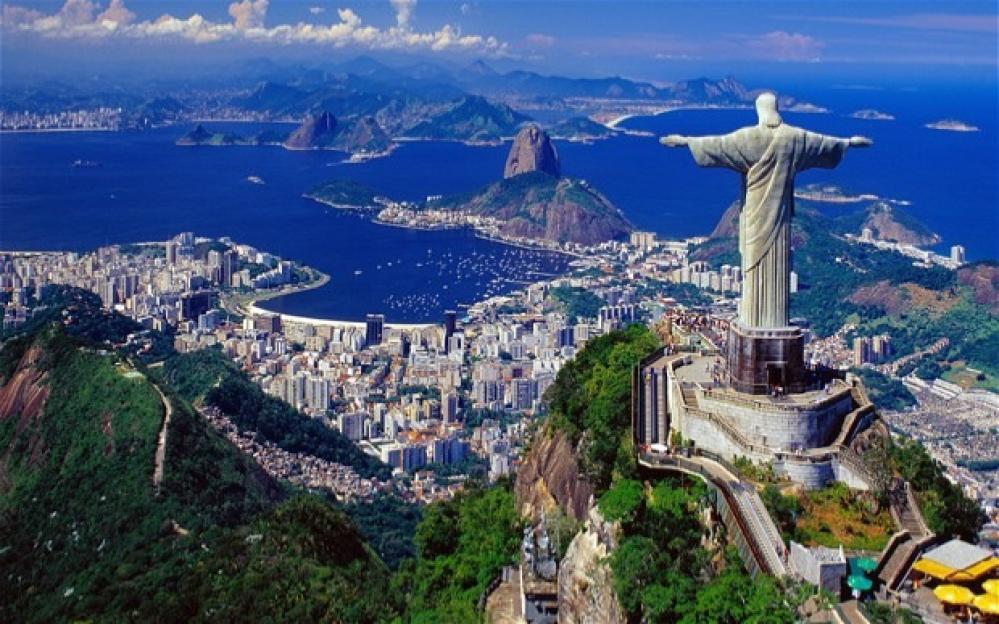Brazil, the largest country in South America by area and population, is one of the most influential countries in the world due to its diverse economy, rich culture, and long history. The Republic of Brazil was founded in 1889 after the end of imperial rule, and today it is a democratic federal republic consisting of 26 states and one federal district.
### Geographical location and nature
Brazil extends over an area of more than 8.5 million square kilometres, and is the fifth largest country in the world. It is bordered to the north by Venezuela, Guyana, and Suriname, to the west by Colombia, Peru, and Bolivia, to the south by Paraguay and Argentina, and to the east by the Atlantic Ocean . The country is famous for its great environmental diversity, as it contains the Amazon rainforest, which is the largest tropical forest in the world and contains a large percentage of the world's biodiversity.
### Population and culture
Brazil has a population of more than 210 million, making it the sixth most populous country. The population consists of a diverse mix of races and cultures, the result of extensive migration and intermarriage between indigenous people, Africans brought as slaves, and European and Asian immigrants. This diversity is evident in Brazilian music, dances, cuisine, and celebrations, such as the famous Rio de Janeiro Carnival.
### Economy
Brazil is one of the ten largest economies in the world, relying on a wide range of economic sectors. Agriculture, mining, and energy are the most important sectors, with Brazil exporting large quantities of coffee, sugar, soybeans, and iron ore. The country is also witnessing growth in the manufacturing and services sectors. Petrobras, the national oil company, plays a major role in the country's economy, along with other large companies in diverse industries.
### Challenges
Despite its economic successes, Brazil faces many challenges. Poverty and economic inequality remain major problems, with many Brazilians living in difficult circumstances. Crime and corruption also pose obstacles to progress. In addition, there are serious environmental challenges, especially with increasing deforestation in the Amazon region, which threatens biodiversity and contributes to climate change.
### Politics
Brazil's political system is a federal republic, where the president is elected by direct popular vote. The Brazilian Parliament consists of two chambers: the Senate and the House of Representatives. This democratic system promotes political pluralism and freedom, but faces ongoing challenges due to corruption and political tensions.
### Conclusion
Brazil is a country that combines stunning natural beauty, great cultural diversity, and tremendous economic power. Despite the challenges it faces, Brazil remains a pivotal country on the global stage, and continues to attract attention with its contributions in many areas. The future requires Brazil to deal wisely with its internal and external challenges to achieve economic and environmental sustainability and continue on the path of development and prosperity.

